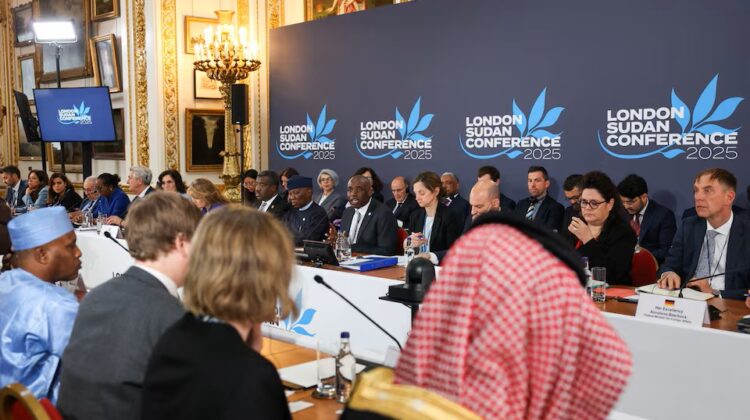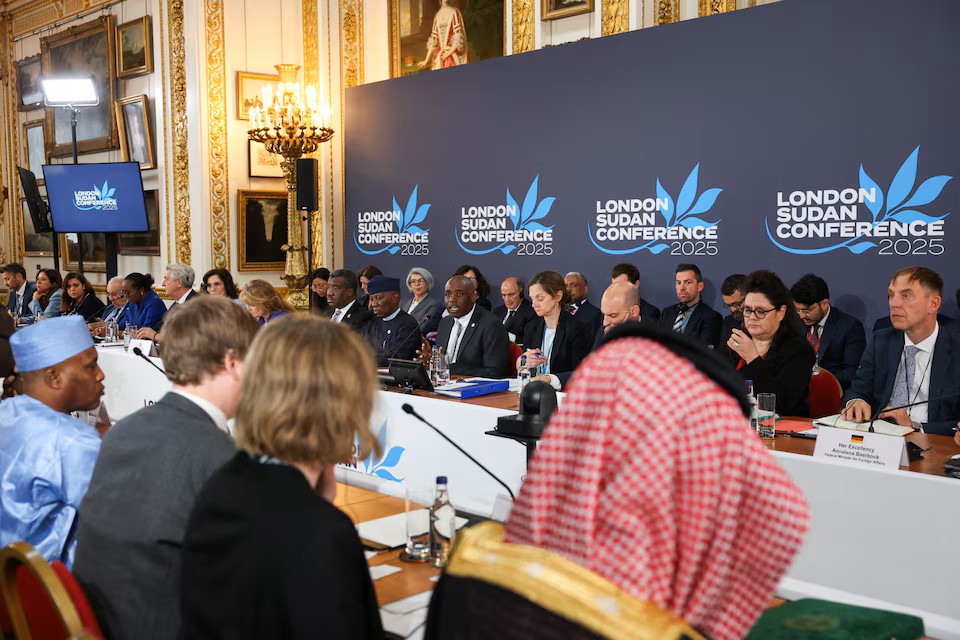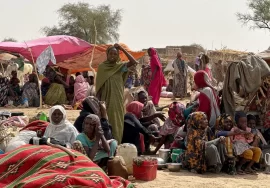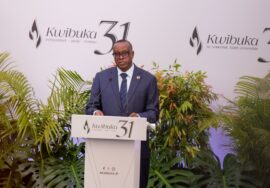
Arab Powers Failed to Find Consensus on Ending the Two-year War in Sudan

At a London-hosted conference on Tuesday 15 April 2025, the United Arab Emirates, Egypt and Saudi Arabia disagreed on issues surrounding Sudan’s governance, jeopardising efforts to find consensus on ending the two-year war in Sudan.
Both Sudan’s army and the paramilitary Rapid Support Forces have drawn on the support of countries in the region, making them key to efforts to end the conflict, which has displaced 13 million people and spread disease and hunger among those remaining.
“There was a clear call from us that we needed unity around, you know, an urgent need first and foremost that Sudan should transition to an independent civilian-led government,” said Lana Nusseibeh, assistant minister for political affairs at the UAE’s Ministry of Foreign Affairs.
“And that’s why … we were very disappointed that despite the gravity of the situation and the UK’s efforts, we were unable to agree on a joint communique yesterday.”
Sudan had protested the inclusion of countries including the UAE which it has accused of supporting the RSF including this month at the International Court of Justice, accusations the UAE denies.
The summit also included Egypt, which maintains close ties to the Sudanese army, which has run Sudan since a coup in 2021, as well as Saudi Arabia, which has hosted rounds of failed peace talks.
Two Egyptian security sources said that disagreements were over the insistence by some of the presence of a civilian-led government in Sudan versus a path to end the war and leaving the issue of governance to the Sudanese to decide later on.
But one diplomat present at the talks said the disagreement stemmed from language on state institutions. Egypt argued for language rejected by others including the UAE as it was seen as legitimising the army regime, while Saudi Arabia supported Egypt’s efforts, the source added.
The open disagreement between the Arab powers ultimately doomed the communique, the diplomatic source said, and created a further roadblock for future peace efforts.
The disagreements came amid the backdrop of efforts by the RSF to install a parallel government, which it says will represent all of Sudan. Such a government, however, is unlikely to gain wide approval.
The army and RSF had ruled Sudan together since ousting civilians in 2021, before falling out in April 2023 over plans to integrate their forces.
Though the RSF quickly took over swathes of Sudan during the first half of the war, the army has in recent months regained most of central Sudan. The RSF is consolidating its control of the Darfur region in the west, including in recent days during devastating raids of the Zamzam displacement camp which have drawn widespread criticism.
@Reuters




